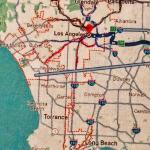“Don’t touch my junk” was the protest heard ‘round the world. Calls were made for travelers to “opt-out” of new airport security measures: to engage in Civil Disobedience, refusing to submit to either the new full-body scanners or the enhanced pat-down procedures. Then Wednesday — one of the busiest travel days of the year — came and went with few incidents. The media and the internet were filled with cries of indignation in the days leading up to pre-Thanksgiving travel, but the actual day came “Not with a bang but a whimper.” As reported in The New York Times, “Lines were shorter because airport security was staffed up and people arrived early just in case. The occasional protester was surrounded not by angry crowds but eager reporters.”
I am sympathetic to the public ire. I haven’t been to law school, but I have read the Fourth Amendment: “The right of the people to be secure in their persons, houses, papers, and effects, against unreasonable searches and seizures, shall not be violated, and no Warrants shall issue, but upon probable cause, supported by Oath or affirmation, and particularly describing the place to be searched, and the persons or things to be seized.” “Unreasonable” is, admittedly, a vague criteria, but we’ve been on the edge of reason since 9/11.
Nevertheless, when faced with the inconvenience of potentially missing a Thanksgiving flight, most travelers chose to submit, if necessary, to the invasive procedures rather than protest directly to a T.S.A. official. For better or worse, I likely would have made the same compromise. But as the combined cost of the wars in Iraq and Afghanistan exceed $1 trillion and more than 100,000 civilian casualties, the consequences of our many collective compromises becomes evident.
Our “love of self” is seen in both our indignation at the new invasive searches and in our hesitancy to be inconvenienced by actively resisting these same searches. But as Christians we are called, not only to love ourselves, but also to love our neighbors — including our Iraqi and Afghani neighbors — as ourself.














